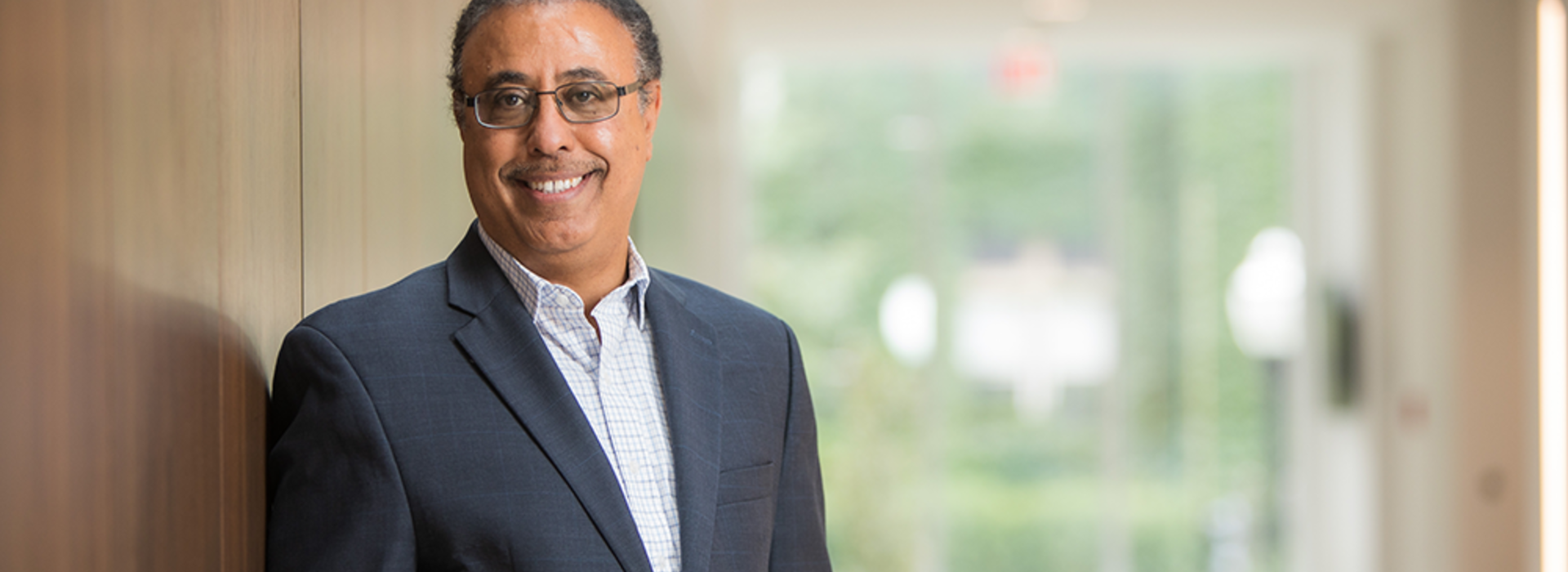
‘Mental Health is Health’: Insights from a Medical School Researcher on World Mental Health Day
Considering the global COVID-19 pandemic, understanding mental health awareness is imperative, and although recognized annually on World Mental Health Day (Oct. 10, 2020), the topic requires attention throughout the entire year. Faculty members at the University of Minnesota Medical School, Duluth Campus understand this and are constantly researching and looking for answers to help community members manage their lives around the world.
One such faculty member, Mustafa al’Absi, PhD, a professor in the Department of Family Medicine and Biobehavioral Health and director of the Duluth Global Health Research Institute, teamed up with a handful of Duluth campus experts to conduct a survey about stress and resilience in the age of COVID-19.
“Mental health is an essential component of health,” he said. “There is no health without mental health. In order for there to be wellbeing, one must be able to cope with stress and realize his or her own potentials.”
While it is all well and fine to talk about these terms, what does it mean to have stress? What does it mean to lack wellbeing? In some ways, it is a bit like the chicken and egg where we wonder about which one comes first. Do we have stress and then recognize we do not have wellbeing? Alternatively, do we have wellbeing and recognize when there is stress? To pinpoint the answer, Dr. al’Absi discusses what it means to experience stress.
“We typically define it as external challenges. They can be social, psychological and physical,” he said. “These challenges are perceived as threatening and require adjustment and coping. At the same time, it can include how our body responds to these challenges — this stress. How do we behaviorally respond, or how do we deal with the stress?”
These considerations are important because, when we know how we respond, we can recognize when challenges are actually stressing us. For instance, if someone responds to the mandated quarantine during the COVID-19 pandemic by increasing how much she smokes, she can recognize by the amount of smoking that she has stress and potentially seek help when that behavior emerges. Another example is when stress hits someone and he reaches for alcohol or food to fulfill the need for a sense of wellbeing. When the goal is to cover the stress, the consequences can build over time leading to long-term diseases tied to stress management through addictive behaviors.
“We need to promote better understanding that mental health is part of the whole person,” Dr. al’Absi said. “Awareness helps with reducing stigma, and stigma is a big barrier for seeking help for a mental health problem. It’s important to make the message linear: mental health is health.”
When posed with the question of how individuals might handle the current state of pandemic stress, Dr. al’Absi offers sound advice based on decades of research, knowledge and experience.
“I encourage everybody to see the positive side as much as we are seeing the negatives of this upheaval,” he said. “What positives are occurring right now? We are seeing the collective sense of being together, facing a challenge together, being motivated to help where possible and seeing at multiple levels the demonstration of support to each other.”
In numerous ways, Dr. al’Absi’s research and work encourages thinking about community connections and how to manage stress during this time of uncertainty along with the health threats whirling all around us. Beyond connecting with our community in safe ways while adhering to social distancing, how can individuals flatten their curve of stress?
“Limit exposure to news,” Dr. al’Absi said. “Structure your day. Be mindful about how much media about the virus you expose yourself to; it does not help to spend many hours scrolling through news feeds and posts about COVID-19. It means you are opening yourself to too much suffering and sadness. This can increase stress tremendously and lead to various symptoms of depression and anxiety as well as substance use disorders. Schedule time to watch or read the news, then spend the rest of your time living your life as normally as possible. Your mental health and your overall health will thank you for this mindfulness.”